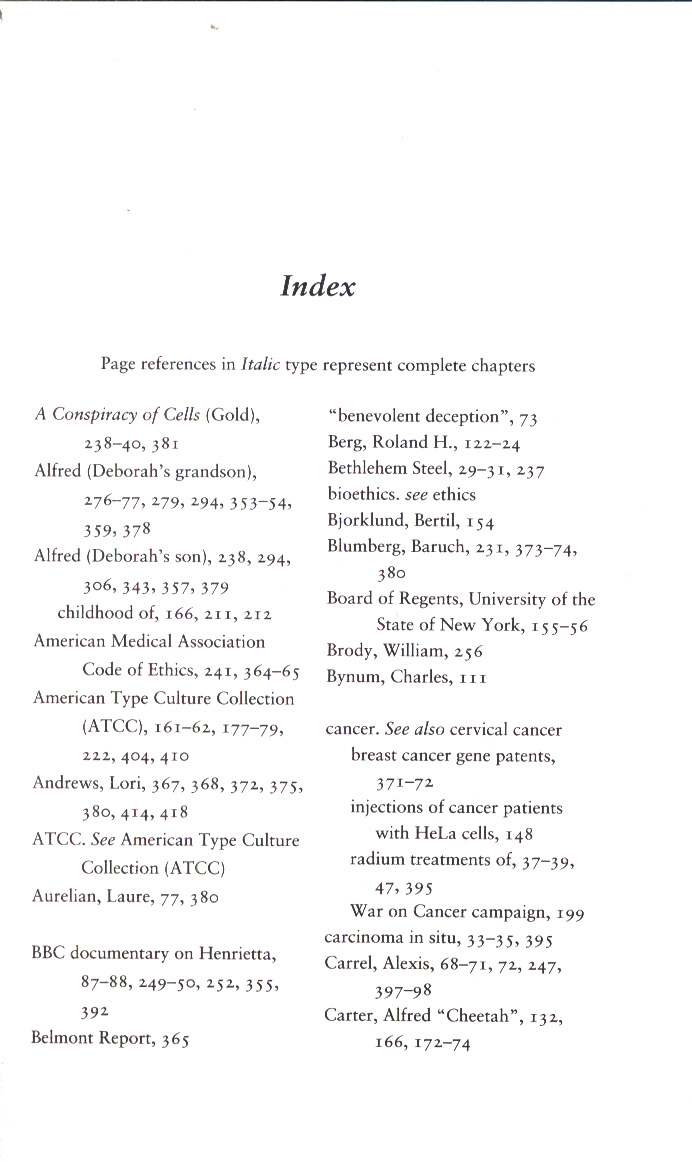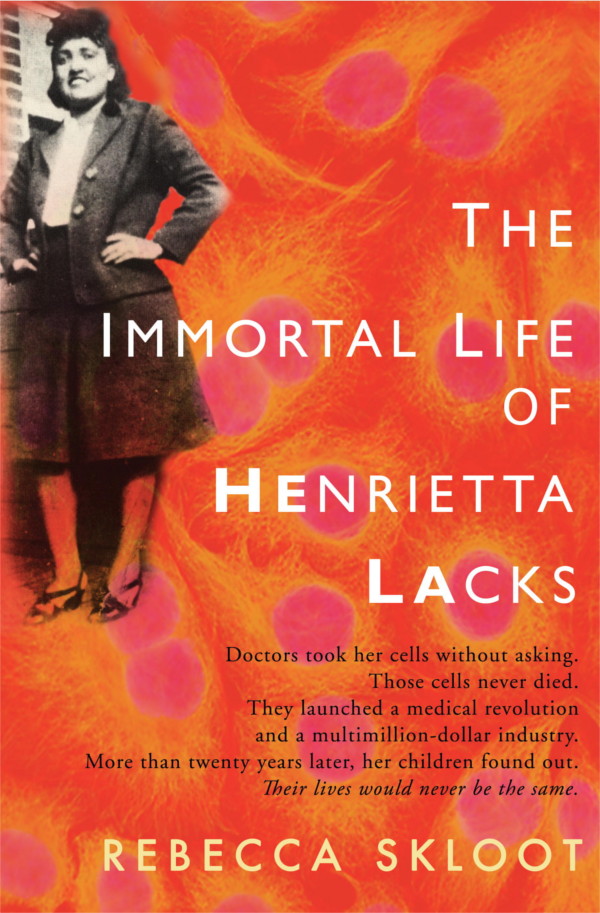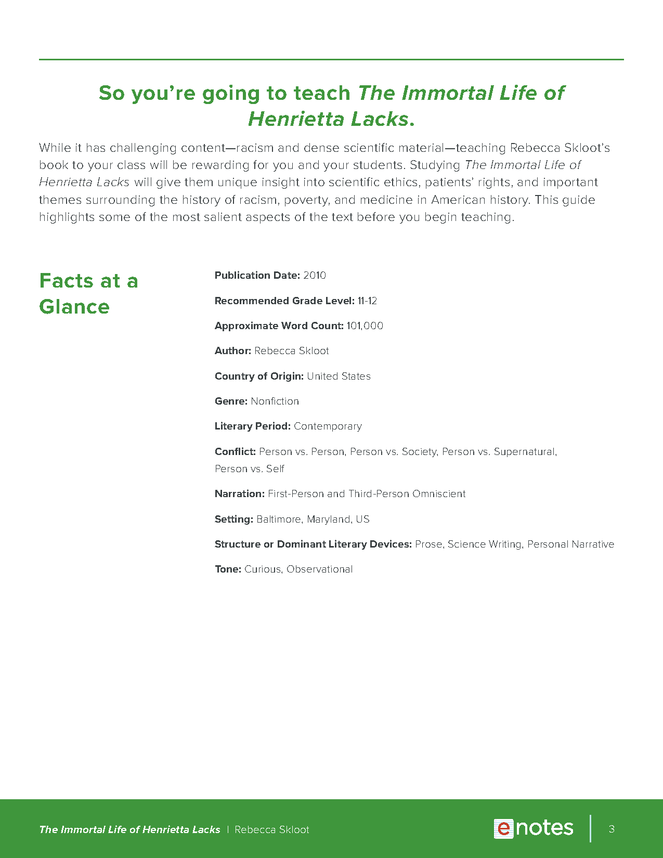

- #The immortal life of henrietta lacks questions for free
- #The immortal life of henrietta lacks questions movie
On the other hand, by referring to the HeLa cells as “pieces” of Henrietta, Cootie affirms that the cells are remnants of his cousin, not just bits of matter manipulated by scientists in labs. They have reached a size and mass that she never approached in life. On one hand, it stresses how separate Henrietta is from her cells. This quote from Henrietta's cousin Cootie is somewhat contradictory. “And Henrietta never was a big girl.” Pg. “You know, they said if we could get all the pieces of her together, she’d weigh over eight hundred pounds now,” he told me.

Lastly, the quote illustrates Henrietta’s generous and selfless spirit. Second, it introduces the idea of Henrietta’s cells making her immortal. First, it shows that at some point Henrietta was told of her cells’ importance and role they would play for civilization. If this exchange between Gey and Henrietta actually occurred, it’s significant for several reasons. She told him she was glad her pain would come to some good for someone.” Pg. “George told me he leaned over Henrietta’s bed and said, ‘Your cells will make you immortal.’ He told Henrietta her cells would help save the lives of countless people, and she smiled. Skloot passes Patillo’s test, because he puts her into contact with Henrietta’s family. If she truly wishes to tell Henrietta’s story, she should already know that science has a past of misusing Black bodies. When he asks Skloot what she knows about the relationship between Black people and science, he is testing her intentions. Seemingly perfunctory, Patillo’s question masks a relationship fraught with violence, deceit, and racism. “What do you know about African-Americans and science?” Pg. Is it ok to use humans as research without their consent? At what point should the rights of the individual supersede their possible contributions to the human race? This quote also foreshadows Henrietta’s story-George and Margaret Gey acquired Henrietta’s cells from John Hopkins hospital, which treated her for free. This quote introduces the topic of medical ethics to Skloot’s work and sets up many of the questions Skloot explores throughout the book.
#The immortal life of henrietta lacks questions for free
Many scientists believed that since patients were treated for free in the public wards, it was fair to use them as research subjects as a form of payment.” Pg 51 We are deeply committed to the ongoing efforts at our institutions and elsewhere to honor the contributions of Henrietta Lacks and to ensure the appropriate protection and care of the Lacks family’s medical information.“Like many doctors of his era, TeLinde often used patients from the public wards for research, usually without their knowledge. At several points across those decades, we found that Johns Hopkins could have - and should have - done more to inform and work with members of Henrietta Lacks’ family out of respect for them, their privacy and their personal interests.


The publication of Skloot’s book led Johns Hopkins to review our interactions with Henrietta Lacks and with the Lacks family over more than 50 years.
#The immortal life of henrietta lacks questions movie
We were proud to support the book research and development of the film by providing full access to the Hopkins archives and granting permission to HBO to film several scenes for the movie on the Hopkins campus. Johns Hopkins applauds and regularly participates in efforts to raise awareness of the life and story of Henrietta Lacks. This guide addresses several important health care, research and ethical themes addressed in the book and in the movie. Her cells, known as HeLa cells for Henrietta Lacks, remain a remarkably durable and prolific line of cells used in research around the world. The donation of Henrietta Lacks' cells began what was the first, and, for many years, the only human cell line able to reproduce indefinitely. Henrietta Lacks was one of a diverse group of patients who unknowingly donated cells at Hopkins in 1951. That book became the basis for the HBO/Harpo film by the same name, which was released in April 2017. In 2010, Rebecca Skloot published The Immortal Life of Henrietta Lacks, a compelling look at Henrietta Lacks’ story, her impact on medical science, and important bioethical issues.


 0 kommentar(er)
0 kommentar(er)
